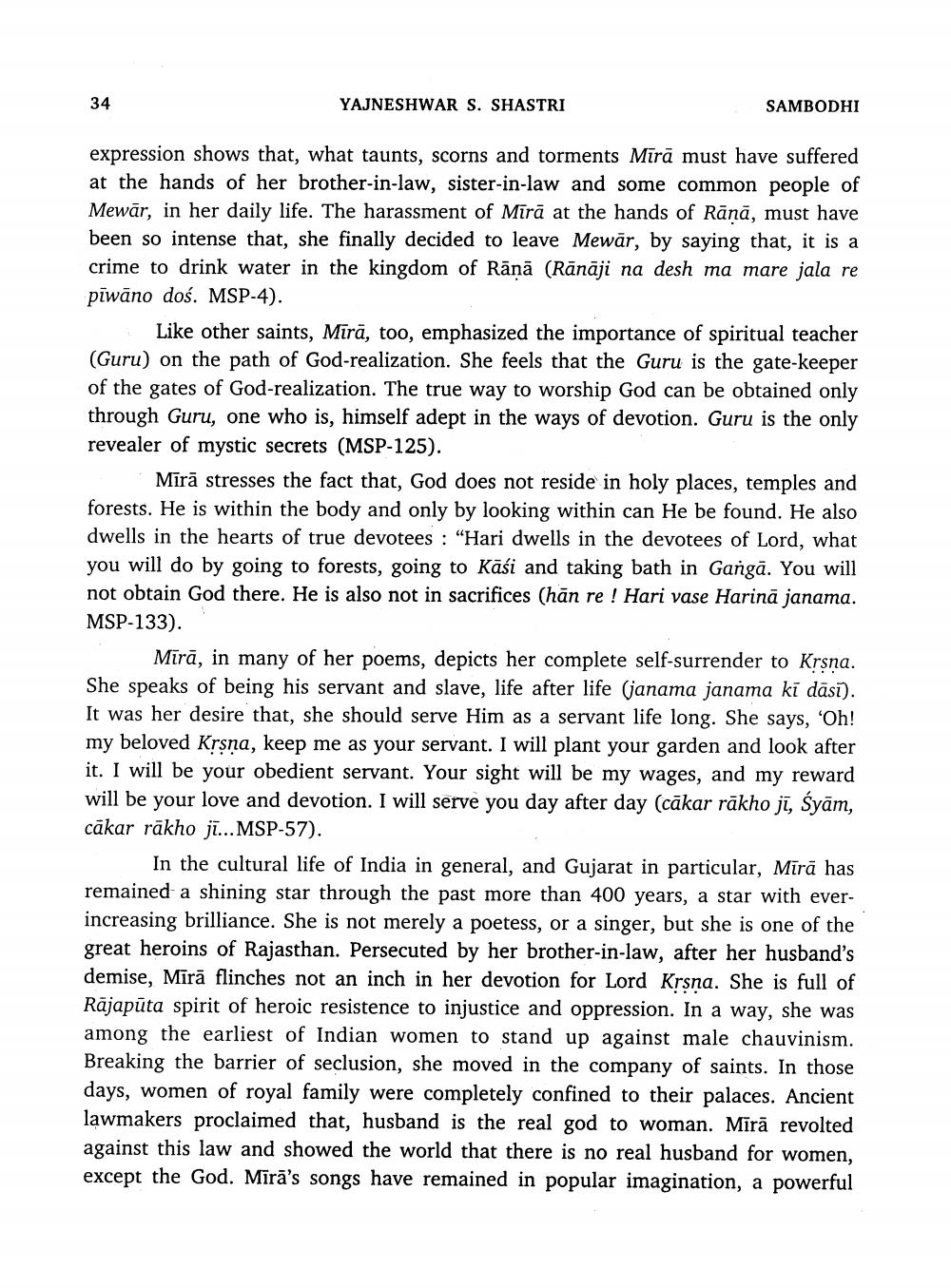________________
34
YAJNESHWAR S. SHASTRI
SAMBODHI
expression shows that, what taunts, scorns and torments Mīrā must have suffered at the hands of her brother-in-law, sister-in-law and some common people of Mewār, in her daily life. The harassment of Mīrā at the hands of Rāņā, must have been so intense that, she finally decided to leave Mewar, by saying that, it is a crime to drink water in the kingdom of Rānā (Rānāji na desh ma mare jala re pīwāno doś. MSP-4).
Like other saints, Mirā, too, emphasized the importance of spiritual teacher (Guru) on the path of God-realization. She feels that the Guru is the gate-keeper of the gates of God-realization. The true way to worship God can be obtained only through Guru, one who is, himself adept in the ways of devotion. Guru is the only revealer of mystic secrets (MSP-125).
Mīrā stresses the fact that, God does not reside in holy places, temples and forests. He is within the body and only by looking within can He be found. He also dwells in the hearts of true devotees : "Hari dwells in the devotees of Lord, what you will do by going to forests, going to Kāśi and taking bath in Gangā. You will not obtain God there. He is also not in sacrifices (hān re ! Hari vase Harinā janama. MSP-133).
Mīrā, in many of her poems, depicts her complete self-surrender to Krsna. She speaks of being his servant and slave, life after life (janama janama ki dāsī). It was her desire that, she should serve Him as a servant life long. She says, 'Oh! my beloved Krsna, keep me as your servant. I will plant your garden and look after it. I will be your obedient servant. Your sight will be my wages, and my reward will be your love and devotion. I will serve you day after day (cākar rakho jī, Syam, cākar rākho ji... MSP-57).
In the cultural life of India in general, and Gujarat in particular, Mīrā has remained a shining star through the past more than 400 years, a star with everincreasing brilliance. She is not merely a poetess, or a singer, but she is one of the great heroins of Rajasthan. Persecuted by her brother-in-law, after her husband's demise, Mīrā flinches not an inch in her devotion for Lord Krsna. She is full of Rājapūta spirit of heroic resistence to injustice and oppression. In a way, she was among the earliest of Indian women to stand up against male chauvinism. Breaking the barrier of seclusion, she moved in the company of saints. In those days, women of royal family were completely confined to their palaces. Ancient lawmakers proclaimed that, husband is the real god to woman. Mīrā revolted against this law and showed the world that there is no real husband for women, except the God. Mīrā's songs have remained in popular imagination, a powerful




